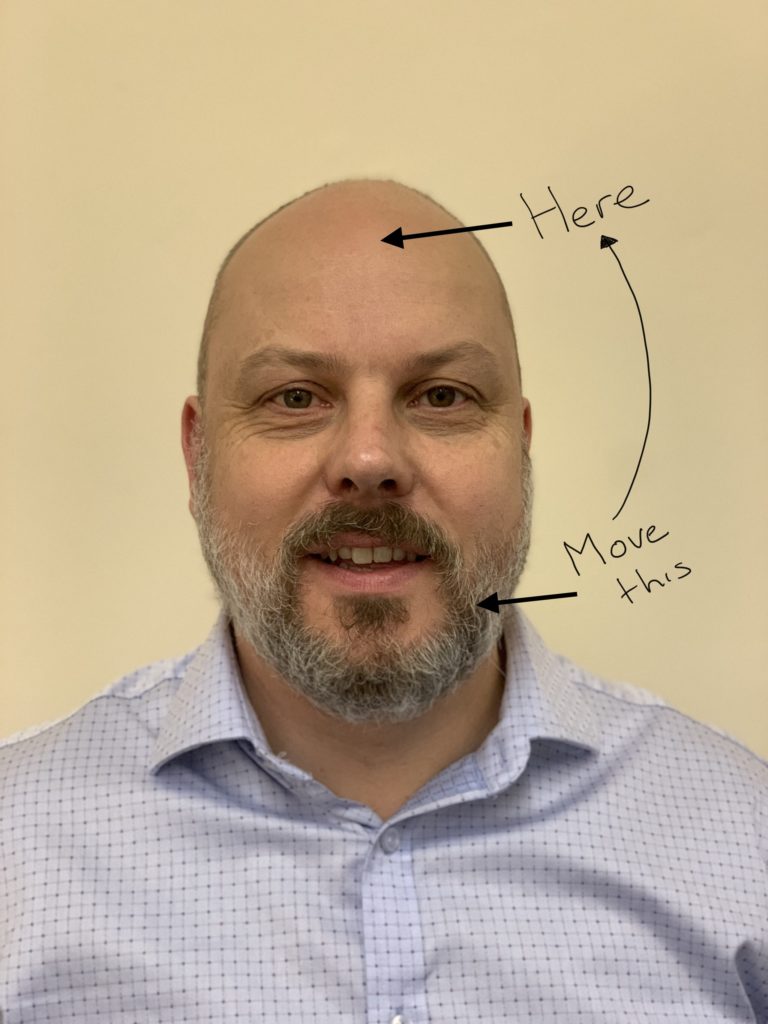Are You An Autopilot Zombie Sleepwalking To Your Doom?

Autopilot behaviour happens to us all. It’s all of those behaviours you do without even thinking.
Acceptance and Commitment Therapy (ACT) is particularly interested in this behaviour because it often gets in the way of you having a rich, fulfilling life.
Sometimes it’s like you’ve morphed into a zombie and you are sleepwalking yourself into Hell. When you wake up it can be too late and leaves you dealing with the aftermath.
Shiny Head
What things do you do on autopilot? Here’s a couple of mine:
When I’m having a shower, I often can’t remember if I’ve washed my hair or not.
Now, if you’ve seen me, you know that I have an “upside down head. ”

I’m bald as a baby on top but have a beard. You might even wonder why I bother with shampoo. A question I’m increasingly asking myself.
At the end of my shower I click out of autopilot and have to look at the shampoo bottle to see if I’ve used it. Mostly I have, but can’t remember doing so – weird eh?!
My next autopilot is eating. Honestly, I can inhale a packet of Maltesers and not even taste them.
Sometimes I wonder what the point of eating them really was, given I derived zero pleasure as I wasn’t paying attention and I can very much do without the calories!
Autopilot Behaviour Hell
Autopilot behaviours can be harmless. Sometimes they’re not.
Often, if you are feeling stressed or you’re struggling with difficult feelings, flicking on Autopilot is one way to manage the discomfort. It usually works.
For example, coming home from work you feel stressed so you crack open a bottle of wine (Malbec, I like Malbec) and autopilot the bottle away. You feel better.
When you wake up the next day you feel worse. It makes the time at work even harder.
When you get home from work, you crack open a bottle of wine because the day was so stressful and the wine helps your feelings go away.
The next day you wake up groggy…
Around and around it goes (watch this video).
And before you know it you’ve got an issue with alcohol and you’ve pickled your liver. Damn that autopilot!
Autopilot Behaviour With Your Other Half
Autopilot shows up in relationships too.
The 2 most common autopilots in a relationship are shouting and withdrawing.
If you’re in a relationship, chances are one of you is the shouter (maximiser) and one of you is the withdrawer (minimiser).
When you get into conflict, you are likely to hit the “Play” button and switch to autopilot.
I used to be terrible for this as a younger man. When things got heated, I’d shut down and withdraw, which drove my partner totally mad. I felt better. She shouted more, and she felt better. The relationship got worse.
Fortunately, I’ve now learnt another way, because living with another in that manner was painful.
The Pause Button
The antidote to autopilot is the pause button. This is where you hit pause, wake up, stand back and notice what the feck is going on.
It takes practise and it’s entirely doable.
Like any superhero, the pause button has an Ally that can help too. Values.
When you hit pause, the question I want you to ask yourself is “Is what I’m doing going to take me towards what’s important in my life?”
If not, then it’s time to stop and do the thing that will bring you back to the direction that you want to go.
How do you work out what your values are? Read this blog post and do the exercise suggested in it.
Not All Autopilots Are Bad
It’s normal to go on autopilot sometimes. What I’m encouraging you to do here is get the balance right. If you can focus on what’s important and spot when autopilot has clicked in then you’re on to a winner.
I guess therapy is a great way of pressing the pause button, standing back and noticing what’s going on in your life. I use Acceptance and Commitment Therapy to help clients do that.
If you’re interested in looking at your autopilot behaviour with Acceptance and Commitment Therapy, then give me a shout, I’ll happily do that piece of work with you.
Now, time for some conscious Malteser eating…
Read The Book
The Happiness Trap by Russ Harris* is probably the most approachable read if you want to find out more about Acceptance and Commitment Therapy. Russ does a great job of keeping it simple.
Do The Course
If you want to learn about ACT in more depth, then I offer an introductory online course. You will get the fundamentals of ACT and plenty of exercises to apply it to your own life. All from the comfort of your own sofa! Click here to find out more.
*affiliate link
